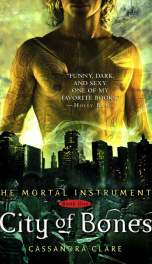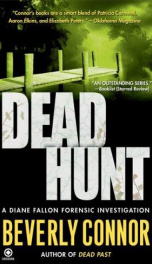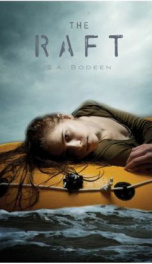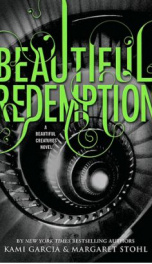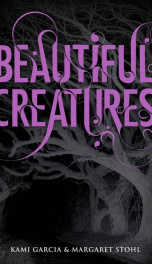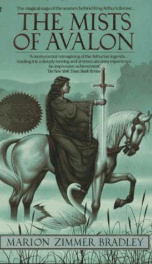Harrison Jane Ellen

Jane Ellen Harrison (9 September 1850–5 April 1928) was a British classical scholar, linguist and feminist. Harrison is one of the founders, with Karl Kerenyi and Walter Burkert, of modern studies in Greek mythology. She applied 19th century archaeological discoveries to the interpretation of Greek religion in ways that have become standard. Contemporary classics scholar Mary Beard, Harrison's biographer, has described her as "in a way ... [Britain's] first female professional 'career academic'".[1] Harrison was born in Cottingham, Yorkshire and first received tutelage under family governesses in subjects such as the many languages Harrison learned: initially German, Latin, Greek and Hebrew, later expanded to about sixteen languages, including Russian. Harrison spent most of her professional life at Newnham, the progressive, recently-established college for women at Cambridge. She knew Edward Burne-Jones and Walter Pater, and moved in the Bloomsbury group, with Virginia Woolf (who was one of Harrison's close friends and looked to her as a mentor), Lytton Strachey, Clive Bell and Roger Fry. With Gilbert Murray, F. M. Cornford, and A. B. Cook, she was inspired to apply anthropology and ethnography to the study of classical art and ritual. Harrison and this later group of people have become known as Cambridge Ritualists. Harrison was, at least ideologically, a moderate suffragette of the early feminist movement. Rather than support women's suffrage by protesting, Harrison applied her scholarship in anthropology to defend women's right to vote. In responding to an anti-suffragist critic, Harrison demonstrates this moderate ideology: "[The Women's Movement] is not an attempt to arrogate man's prerogative of manhood; it is not even an attempt to assert and emphasize women's privilege of womanhood; it is simply the demand that in the life of woman, as in the life of man, space and liberty shall be found for a thing bigger than either manhood or womanhood -- for humanity." (84-85, Alpha and Omega) To this end, Harrison's motto was Terence's homo sum; humani nihil mihi alienum est ("I am a human being; nothing that is human do I account alien.") Harrison began formal study at Cheltenham Ladies' College, where she gained a Certificate, and, in 1874, continued her studies in the classics at Cambridge University's Newnham College. Her early work earned Harrison two honorary doctorates, an LLD from University of Aberdeen in 1895 and DLitt from the University of Durham in 1897. This recognition afforded Harrison the opportunity to return to Newnham College as a lecturer in 1898, and her position was renewed continuously until Harrison retired in 1922. In her time, Harrison was renowned for her public lectures on Greek art and for her unconventional and outspoken views. Her lectures on Greek art, usually given to wealthy, predominantly female audiences, were immensely popular in the 1880s, and her unorthodox fascination with pagan folk rituals often stirred up gossip. Harrison studied David Friedrich Strauss's historical criticism of the life of Jesus, and Johann Jakob Bachofen's Mutterrecht (1861), the seminal analysis of matriarchy in antiquity. Harrison's first monograph, in 1882, drew on the thesis that both Homer's Odyssey and motifs of the Greek vase-painters were drawing upon similar deep sources for mythology, the opinion that had not been common in earlier classical archaeology, that the repertory of vase-painters offered some unusual commentaries on myth and ritual. Her approach in her great work, Prolegomena to the Study of Greek Religion (1903)[2], was to proceed from the ritual to the myth it inspired.: "In theology facts are harder to seek, truth more difficult to formulate than in ritual." (p 163). Thus she began her book with analyses of the best-known of the Athenian festivals: Anthesteria, harvest festivals Thargelia, Kallynteria, Plynteria, and the women's festivals, in which she detected many primitive survivals, Thesmophoria, Arrophoria, Skirophoria, Stenia and Haloa. Harrison alluded to and commented on the cultural applications of Charles Darwin's work. Harrison and her generation depended upon anthropologist Edward Burnett Tylor (who was himself influenced by Darwin and evolutionary ideas) for some new themes of cultural evolution, especially his 1871 work, Primitive Culture: researches into the development of mythology, philosophy, religion, language, art, and custom. After a socially Darwinian analysis of the origins of religion, Harrison admitted that religions are anti-intellectual and dogmatic, yet she defended the cultural necessity of religion. In her essay The Influence of Darwinism on the Study of Religion (1909), Harrison concluded: "Every dogma religion has hitherto produced is probably false, but for all that the religious or mystical spirit may be the only way of apprehending some things, and these of enormous importance. It may also be that the contents of this mystical apprehension cannot be put into language without being falsified and misstated, that they have rather to be felt and lived than uttered and intellectually analyzed; yet they are somehow true and necessary to life." (177, Alpha and Omega) World War I marked a deep break in Harrison's life. Harrison never visited Italy or Greece after the war: she mostly wrote revisions or synopses of previous publications, and pacifist leanings isolated her. Upon retiring (in 1922), Harrison briefly lived in Paris, but she returned to London when her health began to fail. Books on the anthropological search for the origins of Greek religion and mythology, include: History of feminism
do you like this author?
What readers are saying
What do you think? Write your own comment on this book!
write a commentWhat readers are saying
What do you think? Write your own comment on this author!
write a commentBook list

unanimism a study of conversion and some contemporary french poets being a p
Series:
Unknown
Year:
Unknown
Raiting:
3.5/5
Show more
add to favoritesadd In favorites
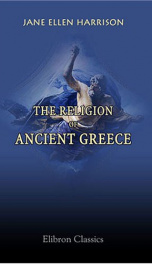
the religion of ancient greece
Series:
Unknown
Year:
Unknown
Raiting:
2.5/5
This Elibron Classics edition is a facsimile reprint of a 1905 edition by Archibald Constable & Co., London.
Show more
add to favoritesadd In favorites
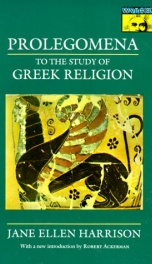
prolegomena to the study of greek religion
Series:
Unknown
Year:
Unknown
Raiting:
5/5
Prolegomena to the study of Greek religion is written by one of the founders of studying Greek religion and mythology Jane Ellen Harrison. In this research she makes a careful study of the festivities of ancient Greek religion with the goal to find out the roots and fundamentals of rituals and them being present in the classical religion and literature. The preface of this famous book states that J. G. Frazer has made a great contribution to her research and influenced as well the works of many other researches of religion. Our contemporary academics who examines ancient myths or rituals can say the same words about Jane Harrison. Her thoughts set in the Prolegomena have not lost their importance and innovation.
Show more
add to favoritesadd In favorites
Book list

unanimism a study of conversion and some contemporary french poets being a p
Series:
Unknown
Year:
Unknown
Raiting:
3.5/5
Show more
add to favoritesadd In favorites

the religion of ancient greece
Series:
Unknown
Year:
Unknown
Raiting:
2.5/5
This Elibron Classics edition is a facsimile reprint of a 1905 edition by Archibald Constable & Co., London.
Show more
add to favoritesadd In favorites

prolegomena to the study of greek religion
Series:
Unknown
Year:
Unknown
Raiting:
5/5
Prolegomena to the study of Greek religion is written by one of the founders of studying Greek religion and mythology Jane Ellen Harrison. In this research she makes a careful study of the festivities of ancient Greek religion with the goal to find out the roots and fundamentals of rituals and them being present in the classical religion and literature. The preface of this famous book states that J. G. Frazer has made a great contribution to her research and influenced as well the works of many other researches of religion. Our contemporary academics who examines ancient myths or rituals can say the same words about Jane Harrison. Her thoughts set in the Prolegomena have not lost their importance and innovation.
Show more
add to favoritesadd In favorites
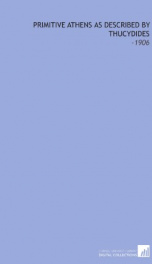
primitive athens as described by thucydides
Series:
Unknown
Year:
Unknown
Raiting:
3.5/5
Originally published in 1906. This volume from the Cornell University Library's print collections was scanned on an APT BookScan and converted to JPG 2000 format by Kirtas Technologies. All titles scanned cover to cover and pages may include marks notations and other marginalia present in the original volume.
Show more
add to favoritesadd In favorites

homo sum being a letter to an anti suffragist from an anthropologist
Series:
Unknown
Year:
Unknown
Raiting:
3.5/5
Show more
add to favoritesadd In favorites
What readers are saying
What do you think? Write your own comment on this author!
write a commentif you like Harrison Jane Ellen try:
readers also enjoyed
What readers are saying
What do you think? Write your own comment on this author!
write a commentGenre
if you like Harrison Jane Ellen try:
readers also enjoyed
Do you want to exchange books? It’s EASY!
Get registered and find other users who want to give their favourite books to good hands!

